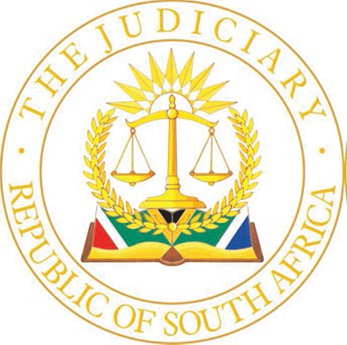
HIGH COURT OF SOUTH AFRICA
GAUTENG DIVISION, PRETORIA
REPORTABLE: NO OF INTEREST TO OTHER JUDGES: NO REVISED. SIGNATURE DATE 
![]() 03 MARCH 2023
03 MARCH 2023
![]()
In the matter between:
JOHANNES PETRUS SMIT APPLICANT
and
PEEZE PROPERTY MARKETING (PTY) LTD FIRSTRESPONDENT
PRINCE NDEBELE SECOND RESPONDENT
SKYDANCE TRUST THIRD RESPONDENT
SANDRA ISABEL WILCOKS N.O FOURTH RESPONDENT
THE SHERIFF OF THE HIGH COURT
OR HIS DEPUTY (PRETORIA EAST) FIFTH RESPONDENT
THE REGISTRAR OF DEEDS OFFICE,
PRETORIA SIXTH RESPONDENT
JUDGMENT
BALOYI-MBEMBELE AJ
[1.] This an application for a declaratory order against the second respondent to transfer Portion 1 of Erf 1627/1 Silverlakes Extension 4 Township, registration division JR, Gauteng Province measuring 1010m2 to the applicant.
BACKGROUND
[2.] On 22 August 2013, the applicant and third respondent (Skydance) entered into an agreement of sale to sell property, Erf 1627 Silver lakes Golf Estates hillside street with Erf size 2017m2. The property was transferred and registered in the name of Skydance on 7 October 2013 under title deed number T80017/2013. On 22 January 2016, a registered letter from the City of Tshwane Municipality was approved, subject to the condition set out for the subdivision of the property into proposed reminder which is 1008m2 and the proposed portion of 1009m2. On 18 October 2018, Skydance and the applicant entered into a sale agreement wherein Skydance sold to the applicant a portion of the property that measures 1010m2.. The transaction was a reverse transfer to return Portion 1 to the applicant as the purchase price was R0.00. It was agreed by parties in an addendum to the original purchase agreement dated 22 August 2013, that all benefits and risks of ownership of portion 1 will pass to the applicant on and from the date of registration of transferring to the applicant.
[3.] On 3 August 2020, Skydance and Peez property entered into a sale agreement to sell the property to Peez property. On 29 October 2020, Skydance and Peez property concluded a further agreement and it was agreed that Portion 1 was subject matter of a division which had been approved by the City of Tshwane, it was not being sold to Peez property. Parties signed an addendum recording that “the parties are desirous to transfer the whole of the undivided property to the purchaser and once the subdivision is capable of being transferred, Portion 1 will be transerred back to the seller's nominated party Johannes Petrus Smith”, the applicant.
[4.] On 20 November 2020, the property was registered in the Peez property including portion 1 under title deed T62456/2020. Peez property secured a mortgage bond with ABSA.
[5.] The applicant brought an application that portion 1 be transferred in his name as agreed between Skydance and first respondent (Peez property). The first and second respondents opposed the application, and raised the following point in limine, non-joinder of ABSA; and further that the applicant has brought an application to enforce a conditional obligation which is not enforceable.
ANALYIS OF EVIDENCE
[6.] It is common cause that the terms of the agreement between the applicant and Skydance were that portion 1 should be transferred to the applicant after subdivision. Skydance sold the property to Peez property. The property was registered in Peez property including portion 1. It was clear from the addendum that ‘portion 1 will be transerred back to the seller's nominated party being Johannes Petrus Smith. Peez property in its answering affidavit admits the addendum and refers to the handwritten notes appearing under the signature which states ‘subject to the approval written consent of Absa as the bondholder being obtained including any applicable terms and conditions following any relevant legal process’. It is clear that Peez property was aware that part of the property portion 1 was subject to sub-division, however it went ahead to secure a bond before effecting the sub-division of the property as agreed. The sub-division was approved by the City of Tshwane on 22 January 2016.
LEGAL FRAMEWORK
[7.] It is trite that for a party to succeed with a claim for specific performance, that party must allege and prove the terms of the contract; and comply with any antecedent or reciprocal obligation, or must tender compliance therewith. The Supreme Court of Appeal confirmed this principle in Nkengana and another v Schnetler and another1
[8.] In this matter the specific performance arises from a written agreement concluded between Skydance and Peez property. It is clear in the addendum that “the parties are desirous to transfer the whole of the undivided property to the purchaser and once the sub-division becomes capable of being transferred, Portion 1 will be transerred back to the seller's nominated party being Johannes Petrus Smith”, the aApplicant. It is common cause that the applicant was not a party to the agreement, however, Peez property was aware that the property is subject to sub-division and should be transferred to the applicant. Peez property was aware of the condition and proceeded to register the property as a whole with ABSA for mortgage bond, knowing very well of the sub-division clause in favour of the applicant.
SPECIFIC PERFORMANCE
[9.] The applicant seeks specific performance for the transfer of a portion of the property to be transferred in his name in terms the agreement as stated in the addendum between Skydance and Peeze property.
[10.] A court must exercise its discretion as to whether specific performance should be granted or not judicially upon consideration of all the relevant facts. It was held in Haynes v King Williamstown Municipality2 that:
"It is, however, equally settled law with us that although the Court will as far as possible give effect to a plaintiff's choice to claim specific performance it has a discretion in a fitting case to refuse to decree specific performance and leave the plaintiff to claim and prove his id quad interest. The discretion which a Court enjoys although it must be exercised judicially is not confined to specific types of cases, nor is it circumscribed by rigid rules. Each case must be judged in the light of its circumstances. As examples of the grounds on which the Courts have exercised their discretion in refusing to order specific performance, although exercised their discretion in refusing to order specific performance, although performance was not impossible, may be mentioned: (a) where damages would adequately compensate the plaintiff; (b) where it would be difficult for the Court to enforce its decree; (c) where the thing claimed can readily be bought anywhere; (d) where specific performance entails the rendering of services of a personal nature…(e) where it would operate unreasonably hardly on the defendant, or where the agreement giving rise to the claim is unreasonable, or where the decree would produce injustice or would be inequitable under all the circumstances.”
[11.] In considering an application for specific performance it was held in Tamarillo (Pty) Ltd v BN Aitken (Pty) Ltd3 that the onus will rest on the respondent to allege and prove why the order for specific performance should not be granted. In this regard, the first and second respondent raises the following points in limine:- the applicant wants to enforce an obligation that is unenforceable and non-joinder of ABSA. It was is submitted that the ABSA has a direct and substantial interest in the matter. The applicant seeks transfer of portion 1 which is part of ABSA as security. Peez property argues that should portion 1 no longer be part of the property, ABSA’s monetary value will be reduced.
NON-JOINDER
[12.] It is the first and second respondent's aurgument that Absa should be joined, as ABSA has direct and substantial interest in the matter. The fourth respondent is not opposing the application and filed notice to abide with the Court order.
[13.] The court in Judicial Service Commission and Another v Cape Bar Council and another4 held that:
“It has by now become settled law that the joinder of a party is only required as a matter of necessity – as opposed to a matter of convenience – if that party has a direct and substantial interest which may be affected prejudicially by the judgment of the court in the proceedings concerned. The mere fact that a party may have an interest in the outcome of the litigation does not warrant a non-joinder plea. The right of a party to validly raise the objection that other parties should have been joined to the proceedings, has thus been held to be a limited one.”
[14.] As a general rule impossibility of performance brought about by vis major or casus fortuitous will excuse performance of a contract. But it will not always do so. In each case it is necessary to “look to the nature of the contract, the relationship of the parties, the circumstances of the case, and the nature of the impossibility invoked by the defendant, to see whether the general rule ought, in the particular circumstances of the case, to be applied”5.
[15.] The applicant in this matter do not have an agreement with ABSA, Peez property secured a bond from ABSA being aware of the condition of the sub-division and knew that Portion 1 belonged to the applicant. ABSA has recourse against Peez property, not the applicant. The issue of non-joinder cannot be used to punish the applicant for the results that was created by Peez property.
COSTS
[16.] The applicant seeks punitive costs. The Constitutional Court in Mkhatshwa and others v Mkhatshwa and others6 held that the purposes of punitive costs, being an extraordinarily rare reward, are to minimize the extent to which the successful litigant is out of pocket and to indicate the Court’s extreme opprobrium and disapproval of a party’s conduct. Although punitive costs are rarely awarded, the Constitutional Court affirmed that existing jurisprudence indicates that they are appropriate when it is clear that a party has conducted itself in an indubitably vexatious and reprehensible manner. I do not find that the first, second and third respondent acted in a vexatious and unacceptable manner.
ORDER
[17.] In the result I make the following order:
(1) The first and second respondent is directed to send the documents passing transfer of the property known as Portion 1 of Erf 1627/1 Silverlakes Extension 4 Township, registration division JR, Gauteng Province measuring 1010m2 held by deeds of transfer NOT62456/2020 into the names of the applicant within thirty(30) day of this order being served on all parties ;
(2) failing which the Sheriff of the High Court his Deputy Pretoria East the fifth respondent should register on behalf that the sixth respondent, be and is hereby directed to register the property known as Portion 1 of Erf 1627/1 Silverlakes Extension 4 Township registration division JR Gauteng Province measuring 1010m2, 1010m2 and held by deeds of transfer NoT62456/2020 into the names of the applicant.
(3) The first and second respondent to pay the costs of this application jointly and severally, the one paying the other to be absolved.
![]() ___________________
___________________
Baloyi-Mbembele
Acting Judge of Appeal
Delivered: This judgment was prepared and authored by the Judge whose name is reflected and is handed down electronically by circulation to the Parties/their legal representatives by email and by uploading it to the electronic file of this matter on CaseLines. The date for hand-down is deemed to be 03 March 2023.
APPEARANCES
APPLICANT COUNSEL: ADV ZE FAKUDE
Instructed by: EHLERS FAKUDE INC
1ST & 2ND RESPONDENTS: ADV T MPAHLWA
Instructed by: SMITH TABATA ATTORNEYS
1 [2011] 1 ALL SA 272 (SCA).
2 1951 (2) SA 371 (A) at 378F-G.
31982 (1) SA 398 (AD) at 442.
4 (818/2011) [2012] ZASCA 115; 2012 (11) BCLR 1239 (SCA); 2013 (1) SA 170 (SCA); [2013] 1 All SA 40 (SCA) (14 September 2012) at para 12.
5 Transnet Limited v Snow Crystal 2008(4) SA 111.
6 [2021] ZACC 15 at para 20.
